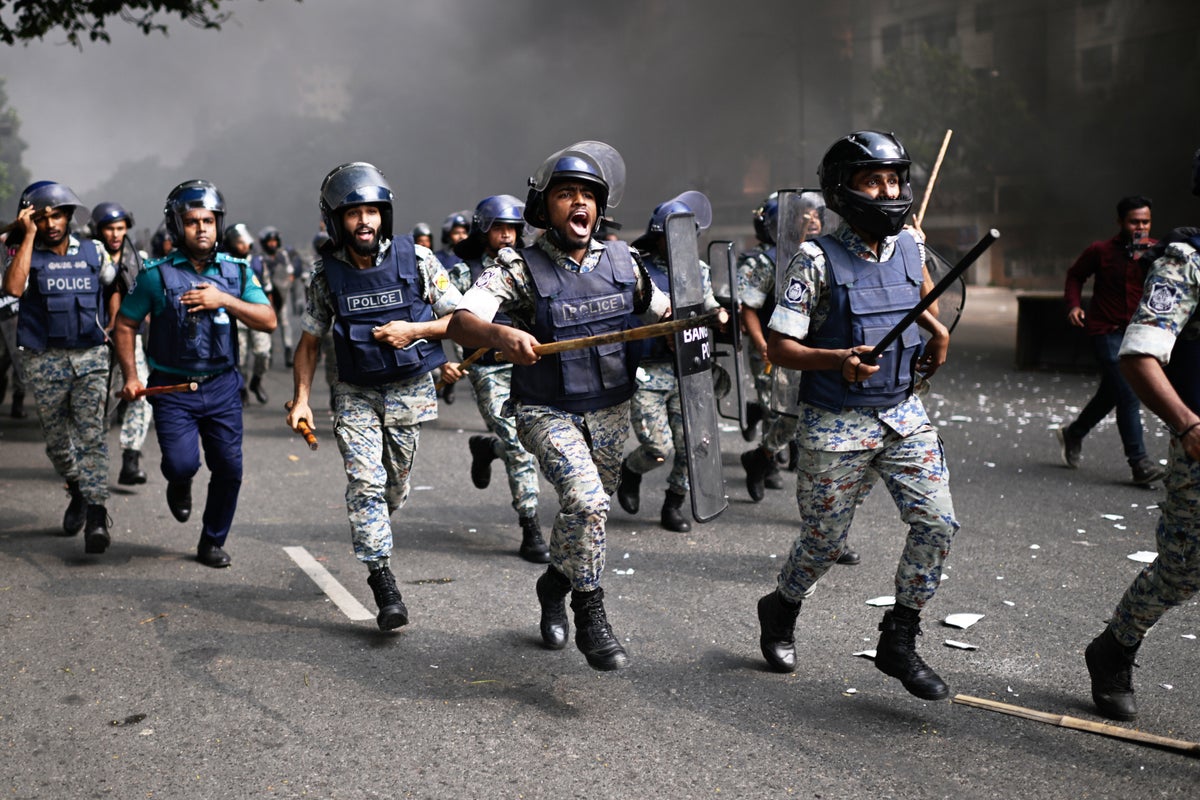
Police fired tear gas and used stun grenades and batons to disperse protesters outside Bangladesh’s national parliament complex Friday, as tensions soared over the interim government's new political charter.
Some protesters vandalized a police vehicle and makeshift tents, and others clashed with soldiers and security officials in the capital Dhaka. Witnesses said several people were injured.
The clashes broke out after several hundred people, who described themselves as those whose protests ousted former Prime Minister Sheikh Hasina, started demonstrating Friday. They expressed anger that their concerns were not addressed in the new charter, despite their loved ones dying during last year's mass uprising against Hasina.
The interim government, headed by Nobel Peace Prize laureate Muhammad Yunus, had invited the country's main political parties to sign the new political charter Friday to pave the way for a raft of political reforms.
The Bangladesh Nationalist Party, headed by former Prime Minister Khaleda Zia, and eight like-minded parties signed the charter, as well as sixteen others, including smaller Islamist parties.
The country’s largest Islamist party, Jamaat-e-Islami, was initially undecided, but later agreed to sign the charter. Four left-wing parties and a newly-formed student-led party, National Citizen Party, did not take part.
Yunus told the audience gathered outside the parliament building that the signings meant a new Bangladesh was taking shape.
“We have entered into a civilized society from barbarism,” he said.
The “July National Charter,” named after the national uprisings that started in July 2024, outlines a roadmap for constitutional amendments, legal changes and the enactment of new laws.
A National Consensus Commission formed by Yunus’ government prepared the charter after a series of talks with 30 political parties. Hasina’s Awami League party and its former allies were not part of the talks.
Hasina, who was toppled last August after huge protests, is in exile in India and is being tried in absentia on charges of crimes against humanity. The United Nations has said that up to 1,400 people may have been killed in the weekslong uprising last year.
Yunus has promised to hold the next national election in February. But questions remain whether the election would be inclusive without Hasina’s party and its allies in the race.







